Electrical safety
We own and maintain the network of lines and cables that bring electricity to your home or business. The overhead service line or underground cable that brings power from our network to your home or business is your responsibility, as well as the electrical wiring inside.
- If your service line needs maintenance or has a fault, you must use a Waipā Networks-approved contractor.
- You should always use a registered electrician to do the wiring inside your home or business.
Safety outside your home or business
Earth pegs, pillar boxes and pit pillars are important to be aware of when your home or business is connected to the Waipā Networks.
Earth pegs
Earth pegs are essential for your safety. They protect you from electrical faults surrounding your building or property.
- If you see an earth peg, do not touch or go near it.
- Treat it as live all the time
- If you think your earth peg is damaged, please contact us.
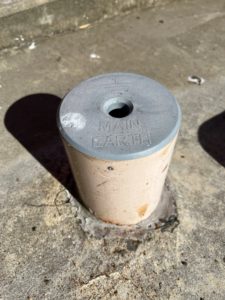
Pillar box or pit pillar
Pillar boxes and pit pillars house all the cables involved in connecting to Waipā Networks’ services.
- You must not touch these
- If you think one you see is in a vulnerable location and likely to be damaged, or if you notice any damage, please call us immediately so we can assess it.
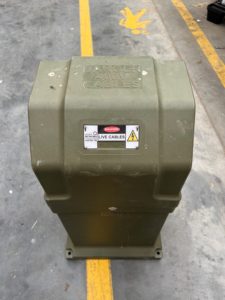
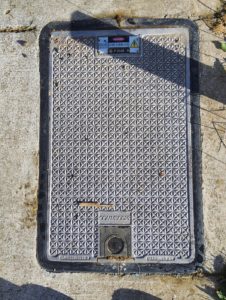
Service lines
If you are not connected to Waipā Networks’ service through underground cables and have a service line instead, your home or business will not have a pillar box.
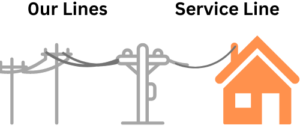
Keeping safe inside your home or business
Not being able to see it makes electricity especially dangerous and it should always be handled with care. It’s crucial to keep some simple safety tips in mind when working with electrical appliances inside your home or business.
- Switch off an appliance before you unplug it.
- Care for your cords – replace any frayed or brittle cords.
- Treat a tingle as a signal – immediately switch off the appliance at the outlet and unplug it from the wall.
- Watch out for wires – always stand well clear, warn others, and contact us immediately if you spot a fallen electrical wire.
- Liquids and electricity don’t mix – never take portable appliances like radios, heaters, phones and hair dryers into the shower or bath, and don’t spray cleaners and solvents on or near switches or sockets.
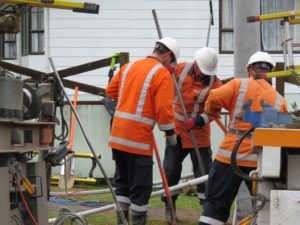
Surge protectors
We try to keep our network load as low as possible, but sometimes, we have a sudden surge. When this happens, household appliances that are plugged in could be damaged.
We recommend using surge protectors to safeguard all your appliances, such as TVs, white goods, and computers. A surge protector diverts any extra spike of electricity away from your appliances to ensure they receive a consistent power level.
Here are some tips for safety inside your home or business:
- Never put your fingers or any other objects in power sockets.
- Don’t let metal objects touch a toaster or anything that conducts power.
- Never allow your children (or anybody else) to climb power poles.
- Always turn the electrical socket off before plugging something in.
- Keep electrical cords away from water. If your electrical appliance has been in contact with water, throw it away immediately.
- Replace appliances with frayed wires.
- Check your power board regularly for wear and tear.
- Check your electric blanket for damage before using it, and look for kinks or areas that are worn.
- Keep power leads tucked away from walkways and open spaces to minimise tripping risk.
- Use only lightbulbs with the wattage shown on the appliance. If there is no indication, use a 60-watt bulb or less.